Hollywood & Spine Archive: Khan-fidentially Yours
An overview of the novelization to STAR TREK II: THE WRATH OF KHAN, originally published September 2020.
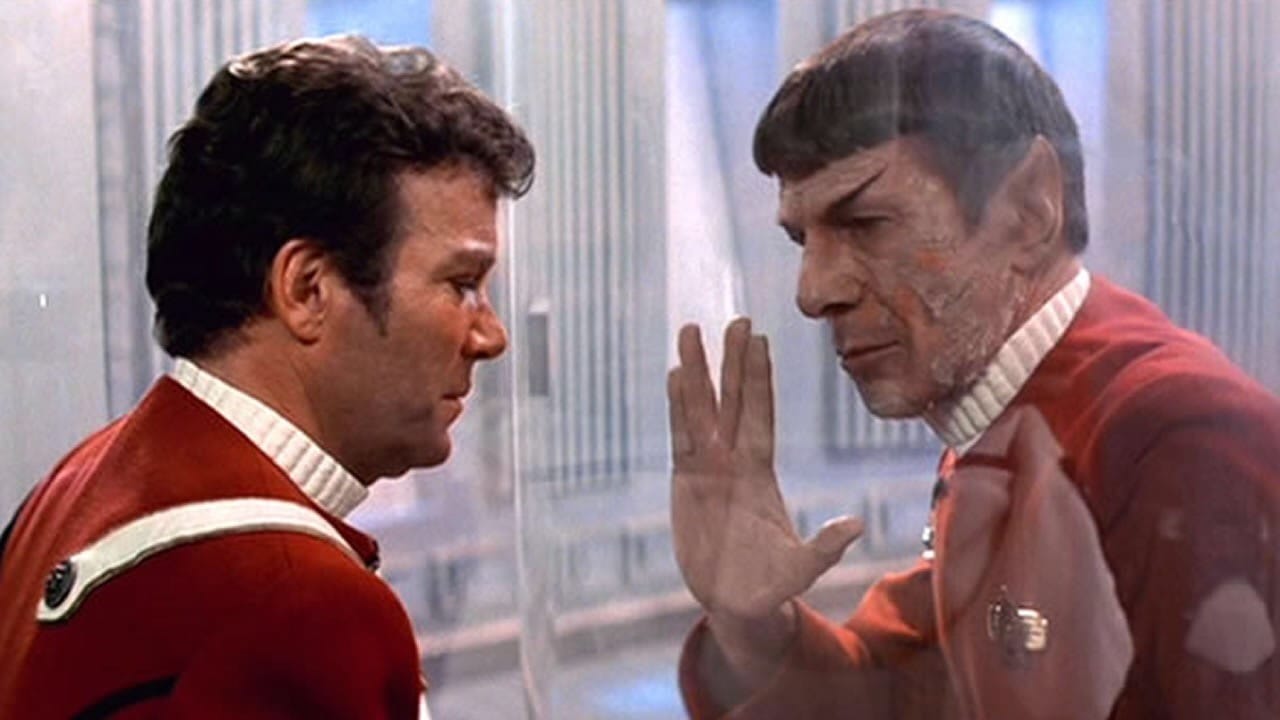
I love a good Star Trek, and this sure is one. It was a fun novel, as I recall, and I'm always glad to include the commentary of another fan or authority, so it's not just me hollering about whatever. I do worry, reading these back, that my resistance to do what I've called "Def Novelization Jam" - the movie does this, the book does this! - sometimes makes these a little denser than need be. Not all the time, but maybe sometime. (originally published 9/15/2020)
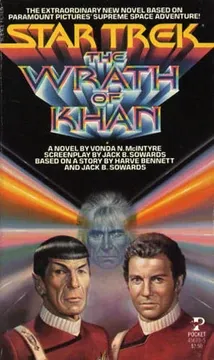
Star Trek II: The Wrath of Khan by Vonda N. McIntyre (screenplay by Jack B. Sowards; based on a story by Harve Bennett and Jack B. Sowards) (Pocket Books, 1982)
The pitch: The Star Trek series boldly went into a new era with this stirring sci-fi drama, where an aging Admiral Kirk joins the crew of the Enterprise in a battle of wills against a villain from his past.
The author: Vonda N. McIntyre (1948-2019) founded the Clarion West Writers Workshop and became the third woman to win a Hugo Award for her 1978 novel Dreamsnake. When Pocket Books began expanding the Star Trek universe through original novels in the 1980s, McIntyre's The Entropy Effect (1981) was lauded by critics and fans (and introduced a later piece of series canon: the first name of the Enterprise's helmsman, Hikaru Sulu). McIntyre later adapted Star Trek III: The Search for Spock (1984) and Star Trek IV: The Voyage Home (1986); and the "trilogy" was compiled for a still in-print omnibus in 2004.
The pitch: Before "fan service" was a hot-button topic among genre entertainment, the second Star Trek film perfected it almost by accident. After the muted critical and commercial response to 1979's Star Trek: The Motion Picture following a decade of pent-up fan demand, series creator Gene Roddenberry was assigned an executive consultancy by Paramount Pictures executives, keeping him on the franchise in slightly more than name while trying to keep a potential Trek follow-up contemporary (and cheap).
Enter Harve Bennett, who produced and developed The Mod Squad, The Six Million Dollar Man and The Bionic Woman for the small screen; though he never watched an episode of Trek until he received the assignment to make a sequel, he crafted a daring story that hinged on a piece of deep series lore - the villainous Khan Noonien Singh, played by Ricardo Montalban in the second season episode "Space Seed" - while also offering accessible sci-fi action and human drama that could appeal to newcomers.
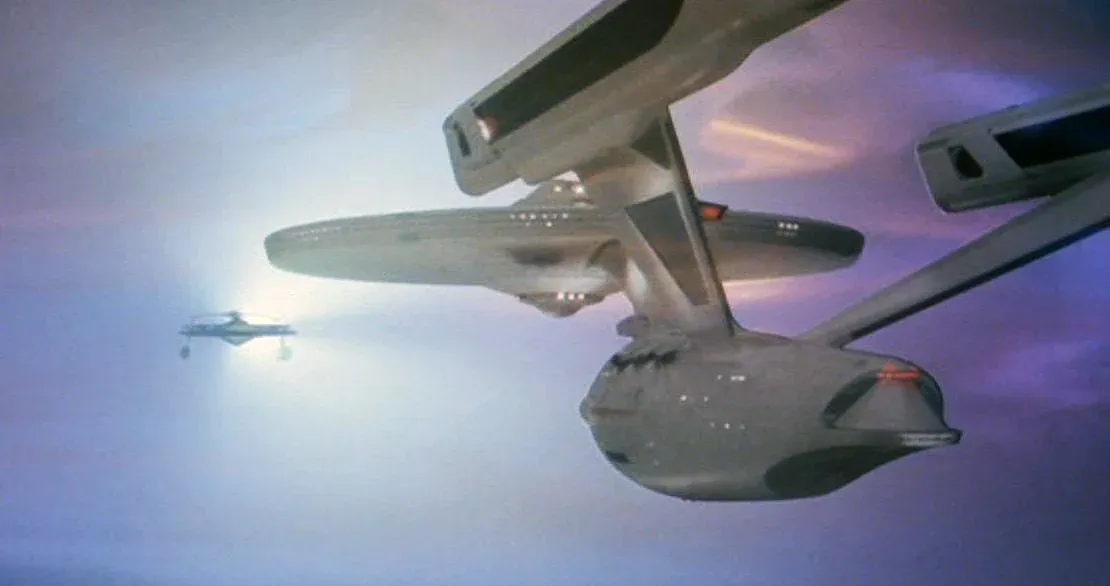
Comparing today's models of shared-universe entertainment, where it doesn't always feel like you can enjoy, say, a Marvel movie without a handful of predecessors, The Wrath of Khan is a minor miracle - and that magic translates to the telling of the tale in writing. McIntyre's prose style and Trek fandom work perfectly together, creating a version of the story that adds some things this casual Trekkie often wanted in The Original Series era: a grand sense of scale and a realistic amount of grit. What makes her work so successful is the ability to do both at once, spending more time with certain places and characters introduced in the film. For instance, the Enterprise's new lieutenant Saavik (played by Kirstie Alley) is given a much deeper characterization on paper - not merely a Vulcan as in the film, but a half-Vulcan half-Romulan, struggling with her dual heritage and the difficulties of human interaction that come with it all.
The depth of detail also enriches the legacy crew of the Enterprise, and Kirk's considerable unease with his new station in life as satisfied admiral instead of galactic adventurer. McIntyre really shapes the feelings that Kirk, Spock, McCoy, Sulu, Uhura and company all have for each other after some 15 real-world years together; their easy candor following the infamous opening sequence, where the Kobayashi Maru training sequence seems to kill them off, really gets things on the right foot. As a fan enraptured by the bond between the emotional Kirk and the logical Spock (which of course plays out in Wrath to incredible effect), I was pleased by their written scenes together. They cover a lot of ground that a few seasons of a TV show and one movie that felt like an extended episode of said show could not.
McIntyre seems respectful, though less impressed, of the story's nemesis. Here, Khan possesses all the cool and cunning the bare-chested Montalban brought to the final film, but his impulses get the better of him the closer he gets to his target. The character of Khan's loyal but exasperated right hand man Joachim underlines these lapses in judgment; he questions many of his decisions once aboard the hijacked starship Reliant but never challenges his commander outright.
The cutting room floor: If you've seen the slightly extended director's edition of The Wrath of Khan, you'll recognize some of its additions writ larger in the novel.
Minor characters get surprising depth in the book, like Enterprise cadet Peter Preston, revealed as the eager nephew of the ship's longtime engineer Montgomery Scott (and one of Saavik's few friends). The team of scientists working on the Genesis Project is expanded beyond Carole Marcus and her son David, including a pair of Deltans (the race Ilia from The Motion Picture was part of) and a human duo that were old friends and computer game programmers in their spare time. (All of this color makes these background characters' deaths - far more violent in the book - much more shocking.)
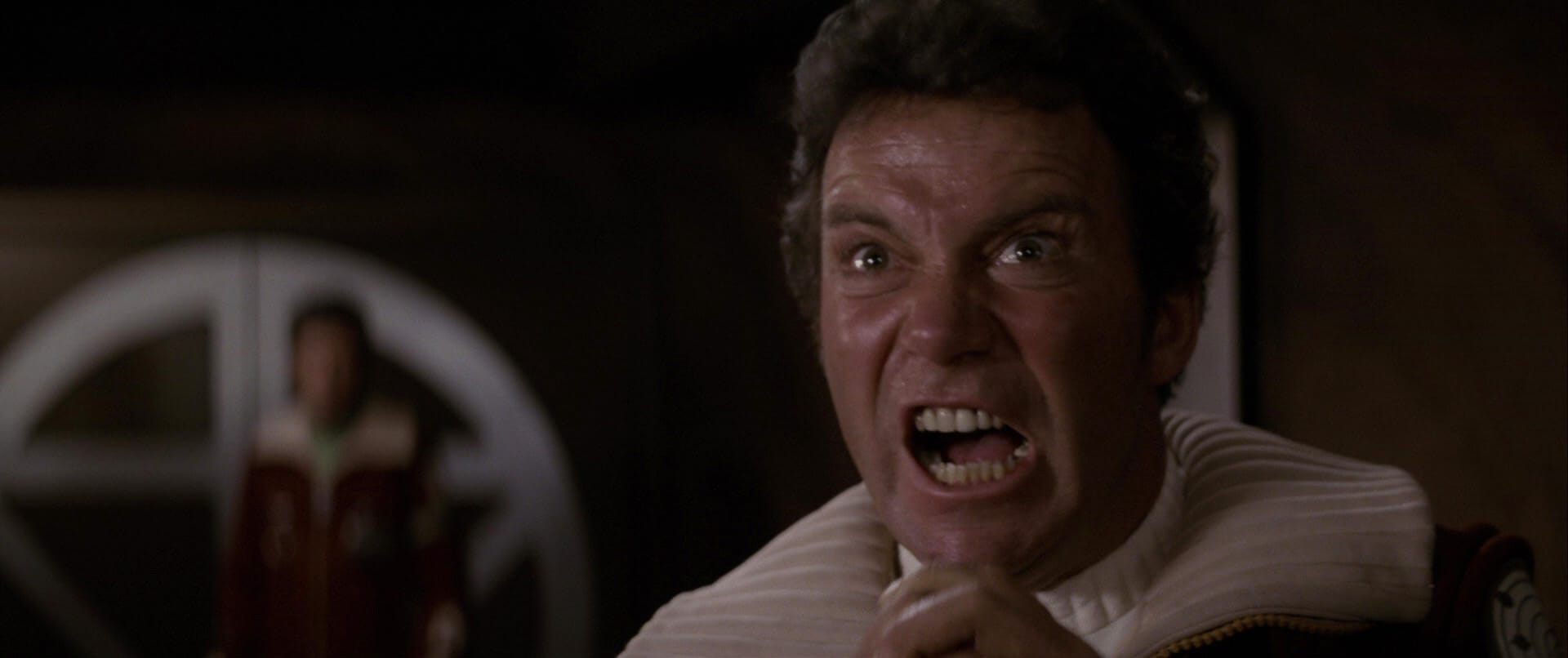
Fans of Trek-ian philosophy will appreciate extensions of moments like the philosophical debate about Genesis that Kirk, Spock and McCoy enter once they're aware of the device and its implications. Lovers of family drama will appreciate extra moments of contention between Kirk and Carol Marcus' son David, whom Kirk discovers is also his son in the course of the book. (The film seemed to imply that Kirk always knew the boy's parentage.) And in a rare, appreciated case of "not in the book but in the movie," McIntyre's novel does not set up the events of Star Trek III, which were devised late-in-production (i.e.: Spock transferring his katra to McCoy before making a sacrifice in the engine room, Spock's body touching down on the Genesis planet).
BONUS! Fan commentary: For something as special as a Trek novelization, I decided to reach out to an Internet pal who knows a thing or two about the final frontier in print: Kevin Church, whose sites They Boldly Went and They Boldly Wrote are great repositories for TOS-era fandom.
Star Trek II: The Wrath of Khan exists because a dude who'd never seen the show picked a one-off episode to make a sequel to. Should Harve Bennett have been arrested for inventing fan service on a macro scale?
I'll give Harve Bennett credit: he took three months to watch every episode, make notes, and then come up with a concept that would please fans of the series and provide a broad enough story that would grab the masses. Since the latter was his primary concern, I'd say any notion of "fan service" was purely coincidental. I know that I saw TWOK at least ten times before I ever got to see "Space Seed" because my dad had taped it off a neighbor's HBO for me!
Vonda McIntyre really changed the game with her Star Trek writings. Where does this one stack up, for you? Having The Entropy Effect, is there any foreshadowing of how she'd tackle this adaptation?
I wrote a bunch about her first Trek novel on my blog, and what really stands out about the book is how well she handles the A Story / B Story structure of traditional Trek stories while maintaining velocity the whole time. Interestingly, TWOK is a smaller story than either of her non-novelizations managed to be and it's obvious just how well-suited she is for the novelization format from the very start of The Entropy Effect. Her prose is punchy, she's visually descriptive without boring the audience, and she manages to handle some pretty big concepts with aplomb.
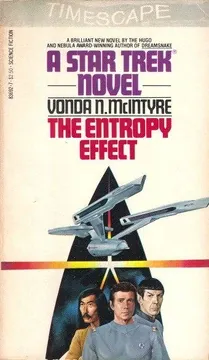
Do you think that bit about Chekov's memory of the events of "Space Seed" was Vonda doing a solid and anticipating that Trekkies were gonna "two notes out of the same rib bone" the hell out of Khan "never forget[ting] a face" that he never saw in the original episode?
As a fan of the show, I guarantee that was the first thing she noticed when she read the script and she wanted to fix it. Quick aside: the concurrently-published Star Trek II Biographies by William Rostler has a contradictory (and slightly ludicrous) explanation: that Khan was so smart that he had memorized the face of everyone in Starfleet while on board the Enterprise.
You joked in our correspondence about Khan hanging dong in the book, but I wasn't prepared for the book featuring Khan explicitly, ritually murdering everyone aboard Regula I. Did Vonda have to go so hard?
No, she didn't, and I remember reading this book when I was 8 or 9 and just being freaked out at how gory it was. You could also say that including that sort of detail turns Khan into a monster instead of someone who was wronged and is seeking some kind of justice. Monsters are cool, but villains with understandable motivations are better.
The thing I love about The Wrath of Khan is, despite being a deep cut in Federation lore, it requires very little knowledge of the show to enjoy. As our reigning Trek-spert, were there more minute details that you picked up on in the book that would've slipped by a more casual reader?
Honestly, not very much! McIntyre's much more interested in telling a story about people than she is checking off boxes for people sending Xerox zines across the country. I like that all of her additions and asides serve the story versus acting as trivia.
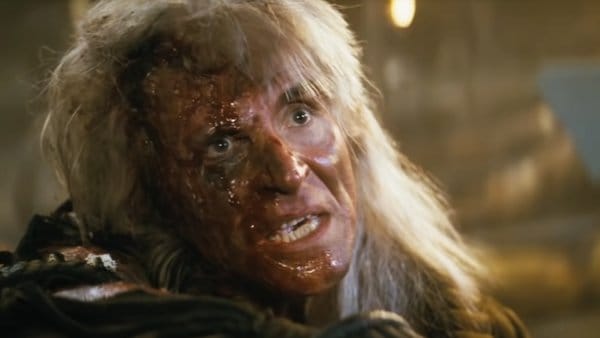
Should we get a #JusticeForJoachim hashtag going? He was really trying to talk some sense into his homeboy Khan.
Ah, Joachim. Judson Scott told Starlog back in 1983 that there were "about 20 minutes" of his character cut out of the movie, and I'm glad McIntyre got to work them back in. The movie works so well because it never slows down and each scene adds something, but sometimes you just want to watch a guy confront his mentor about his crazy-go-nuts plan.
The last word: Like the film it's based on, Star Trek II: The Wrath of Khan represents the best of "classic" Trek without walling off the fun for anyone who's never thought to put on a pair of pointy ears.
